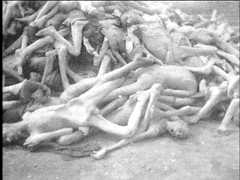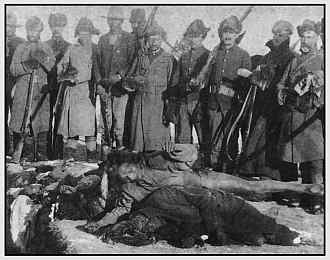By Carol Berry
State Sen. Suzanne Williams (D-District 28), a member of the Comanche Nation who spearheaded the joint resolution on Native genocide, said in an interview before the vote that she expected a “positive reception” from the current legislature, an expectation not fully realized. She acknowledged the measure might “hit too close to home.”
“Every year the Senate and House legislators acknowledge the holocaust and genocide of Jewish people and we also acknowledge the genocide of Armenian people,” she said. “But it’s important to acknowledge the first genocide on our own land—the genocide of American Indians.”
What happened to Native people was, instead of genocide, first termed a “tragedy” and then an “atrocity” by legislators, who submitted amendment after amendment over the precise language to be used in the resolution, with “atrocity” the final choice to replace “genocide.”
In a back-and-forth exchange about legislators’ objections, Williams noted that there were an estimated 18 million Natives in what is now North America at the end of the 15th century, compared to about 1.7 million enumerated in the 2010 U.S. census.
Sen. Ellen Roberts (R-District 6), who said she has worked as an attorney for the Navajo Nation and Colorado’s two Ute tribal nations, asserted that, “There may be those who don’t see a brighter future, but I live and work with those who do.” Hitler was intent on the extinction of an entire peoples and “this is entirely different,” she said.
Sen. Ted Harvey (R-District 30) said, “there is a difference between relocation and annihilation.” While Sen. Kevin Lundberg (R-District 15) said there were “many wrongs” against the nation’s first people, but also “many blessings.”
A central figure orchestrating the extermination is nowhere in the United Nations' definition of genocide, so that's a phony argument. And the continued existence of Indians is exactly comparable to the continued existence of Jews. Genocide is a program to eliminate a people by murder or other means. It doesn't have to be a successful program to constitute genocide.
The "blessings" argument
Then there's the resolution's "negative" nature and the claim that Americans gave the Indians "many blessings." Does that include poverty, crime, and disease? Thanks for nothing, Americans.
What do these "blessings" have to do with the documented crimes against Indians? How does acknowledging these crimes affect the legacy of "blessings"? Why can't we have both, not one or the other?
Who cares if the resolution is "negative"? Why would anyone feel the need to defend dead white men over dead Indians? If our ancestors did wrong, let's set the record straight and say so.
You know the answers to these questions. Americans won't apologize for or even admit their moral crimes. You know, the flaws in their myth of God-loving goodness. Such admission would shatter the illusion of American exceptionalism.
That's what the opposition to this resolution is really about.
We can see this thinking in the preference for words such as "tragedy." They're the same words politicians such as President Obama use when describing American history. Something bad happened to Indians and blacks, but we can't say who did it or how utterly immoral it was. Like a flood or an earthquake, it was a "tragedy" beyond our comprehension.
In contrast, acknowledging the genocide means acknowledging the shortcomings in American society. The shortcomings that are crippling us, judging by the hate for Obama, liberals, women, minorities, immigrants, the poor, gays, Muslims, atheists, and so forth and so on. Deep down we believe that white male Christians--people like the Pilgrims and the Founding Fathers--are the "real Americans." And everyone else is a wannabe, moocher, or bum.
For more on the subject, see Gingrich Cheers Killing of Indians, Chomsky on Genocide Denial, and Descendant Excuses Columbus's Crimes.



3 comments:
Bullshit. Those estimates are way off. Pre-Columbian native populations in what became the lower 48th never exceeded 2 million . No genocide.
You might want to familiarize yourself with the research on the subject, Anonymous. Here, I'll do it for you:
http://en.wikipedia.org/wiki/Population_history_of_indigenous_peoples_of_the_Americas
The population figure for Indigenous peoples in the Americas before the 1492 voyage of Christopher Columbus has proven difficult to establish and rely on archaeological data and written records from European settlers. Most scholars writing at the end of the 19th century estimated the pre-Columbian population at about 10 million; by the end of the 20th century the scholarly consensus had shifted to about 50 million, with some arguing for 100 million or more.
Besides, the number is irrelevant. If Europeans tried to wipe out the Native population, it doesn't matter how many Indians there were. Genocide is genocide whether it's 100 or 100 million people.
Post a Comment